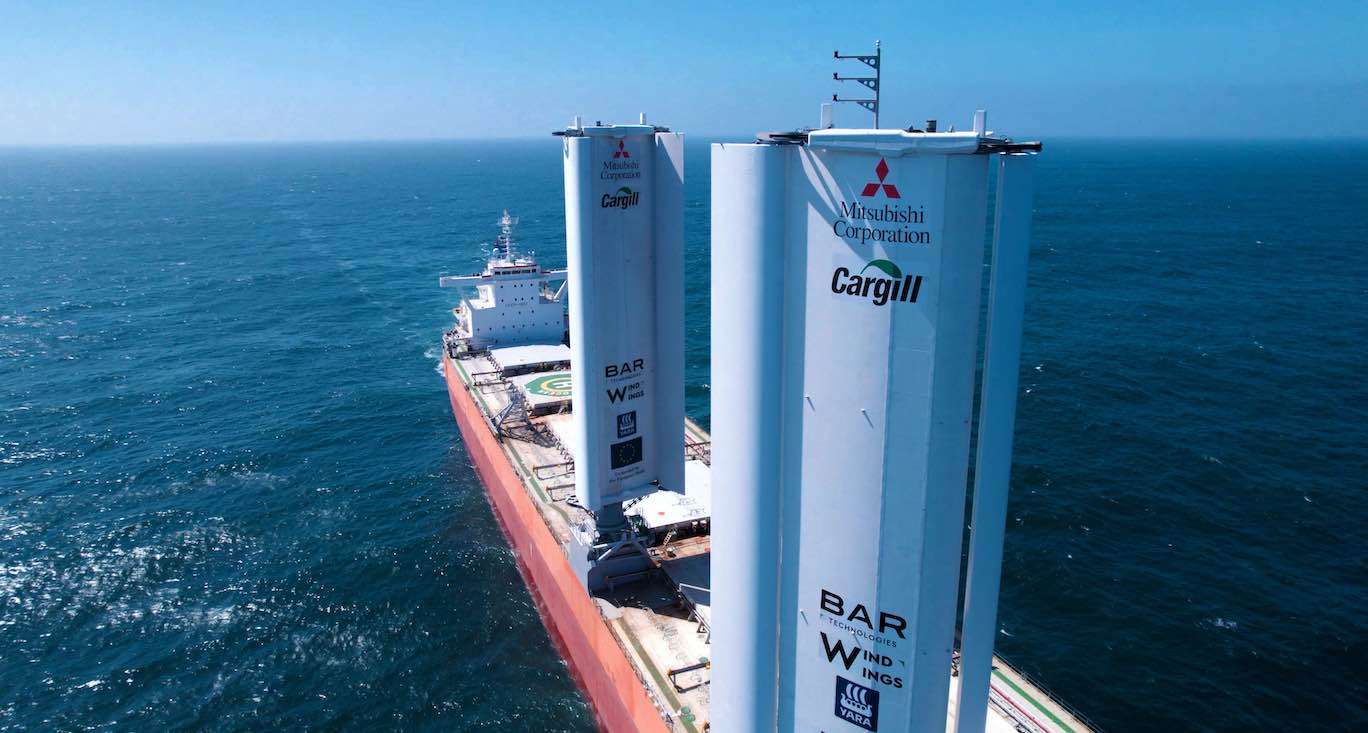Apple Committed $2.5 Billion to Build Affordable Housing and Thousands of Units Have Already been Built
Now, $1.5 billion has already been spent, and it's resulted in the creation of thousands of housing units across the city and county.

It seems a bit silly, but merchant shipping which long ago ditched its sails for internal combustion is now switching back, but not to any sail you've ever seen.
Called WindWings, the large wing sails measure around 100 feet (37 meters) in height and can be added to the deck of commercial vessels.
Pyxis Ocean, chartered by US global food corporation Cargill, is the first vessel to be retrofitted with two WindWings.
Produced by industrialization partner Yara Marine Technologies, they are expected to generate average fuel savings of up to 30% on new vessels, which could be even higher if used in combination with alternative fuels.
Pyxis Ocean is now on the water, conducting her maiden voyage with the WindWings having recently launched in China.
"At Cargill we have a responsibility to pioneer decarbonizing solutions across all our supply chains to meet our customer's needs and the needs of the planet," Jan Dieleman, President of Cargill's Ocean Transportation business, said in a statement.
"A technology like WindWings doesn't come without risk, and as an industry leader-in partnership with visionary shipowner Mitsubishi Corporation-we are not afraid to invest, take those risks, and be transparent with our learnings to help our partners in maritime [sic] transition to a more sustainable future."
The WindWings project, which is co-funded by the European Union is a retrofit solution that is capable of semi-decarbonizing existing vessels. Over half of the world's merchant shipping vessels are over 9 years old, so extensive retrofitting is a must.
The International Maritime Organization (IMO) has set ambitious goals for carbon emissions reduction from the use of diesel fuel on vessels. They hope to lower CO2/equivalents by 70% by 2050 compared to a 2008 baseline.
The performance of the WindWings will be closely monitored over the coming months to further improve their design, operation, and performance, with the aim that the Pyxis Ocean will be used to inform the adoption process across not only Cargill's fleet but the industry.
According to a Cargill release, on an average global route, WindWings can save 1.5 tonnes of fuel per WindWing per day-with the possibility of saving more on trans-ocean routes.
WATCH the WingWings go below…
SHARE This Return To Tech From The Past With Industry-Minded Friends…
Be the first to comment